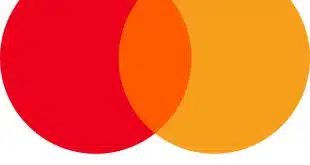Following through on a tax-season initiative it announced last September, the U.S. Treasury Department on Thursday launched a pilot program that could enable more than half a million low- and moderate-income individuals to receive tax refunds via prepaid cards. Next week, the Treasury Department will begin sending letters to 600,000 targeted individuals with incomes under $35,000, a Treasury spokesperson tells Digital Transactions News. The letters will invite the taxpayers to activate a MyAccountCard reloadable Visa prepaid card in time to receive their 2010 federal tax refund.
The card is managed by the big prepaid card program manager Green Dot Corp. and issued by Green Dot’s new partner bank, Bonneville Bank of Provo, Utah.
For the pilot, the card will offer several pricing variations to randomly selected consumers. Some cards will have no monthly fees, for example, while others will have fees up to $4.95. Reloads at Green Dot’s 50,000 participating retail locations could cost up to $4.95. ATM withdrawals will be free if the cardholder uses one of 15,000 ATMs in U.S. Bancorp’s surcharge-free MoneyPass network. Out-of-network withdrawals will cost $2.50. Point-of-sale transactions and online bill-pay will be free.
“This pilot program will provide low- and moderate-income Americans with a low-cost option for faster delivery of their federal tax refund,” Deputy Secretary of the Treasury Neal Wolin said in a statement. “This innovative card can be used for everyday financial transactions, such as receiving wages by direct deposit, withdrawing cash, making purchases, paying bills, and building savings safely and conveniently, giving users more control over their financial futures.”
The Treasury Department has, in effect, a well-known and trusted brand and thus the MyAccountCard could attract many users, says Ben Jackson, senior analyst at Mercator Advisory Group Inc., which follows the prepaid market closely. “The advantage of the card is it has the imprimatur of the Treasury Department,” he says.
Treasury, however, may find itself competing with tax-preparation specialists H&R Block Inc. and Jackson Hewitt Tax Services Inc., both of which already offer customers prepaid card options for tax refunds, Jackson says. Some non-profits also have tax-refund programs linked to prepaid cards, he adds. “They [Treasury] are coming in a little late in the game,” he says.
The Treasury spokesperson responds that, “Our real purpose was to reach out here to people that are unbanked, under-banked, and try out this low-cost card. It’s not that that we’re looking to compete, we’re testing it as a pilot,” she says. The department will evaluate the overall consumer response and responses to the pricing options before deciding what it will do for the 2011 tax year, she says. The spokesperson adds that the department took proposals from several providers before settling on Green Dot and Bonneville Bank.
In addition to potentially saving the Treasury Department millions of dollars a year through reduced need to cut paper checks, the card program “bolsters the credibility of a quickly maturing market already well-versed in serving low-income consumers,” says Melissa Koide, policy director of the Chicago-based Center for Financial Services Innovation. “The pilot is an excellent start to bringing low-cost transaction and savings products to millions of tax filers.”
Treasury also announced Thursday that it is working with payroll and benefits processor Automatic Data Processing Inc. to encourage consumers to load tax refunds onto existing reloadable prepaid cards. Treasury will include inserts with pay statements that will go to “tens of thousands” of consumers served by ADP’s client businesses, according to a department news release. More than 1.7 million workers receive their wages on prepaid cards, often because they don’t have bank accounts, the release says.
The Treasury Department has been front-and-center for some time in dispersing payments via prepaid cards. Its Social Security card, issued by Comerica Bank, is one of the most popular reloadable cards.
The tax-refund card is the first issued by Bonneville Bank for Monrovia, Calif.-based Green Dot, according to a Green Dot spokesperson. The program manager last February disclosed it planned to buy the bank’s parent company, Bonneville Bancorp. The acquisition is still awaiting regulatory approvals.





